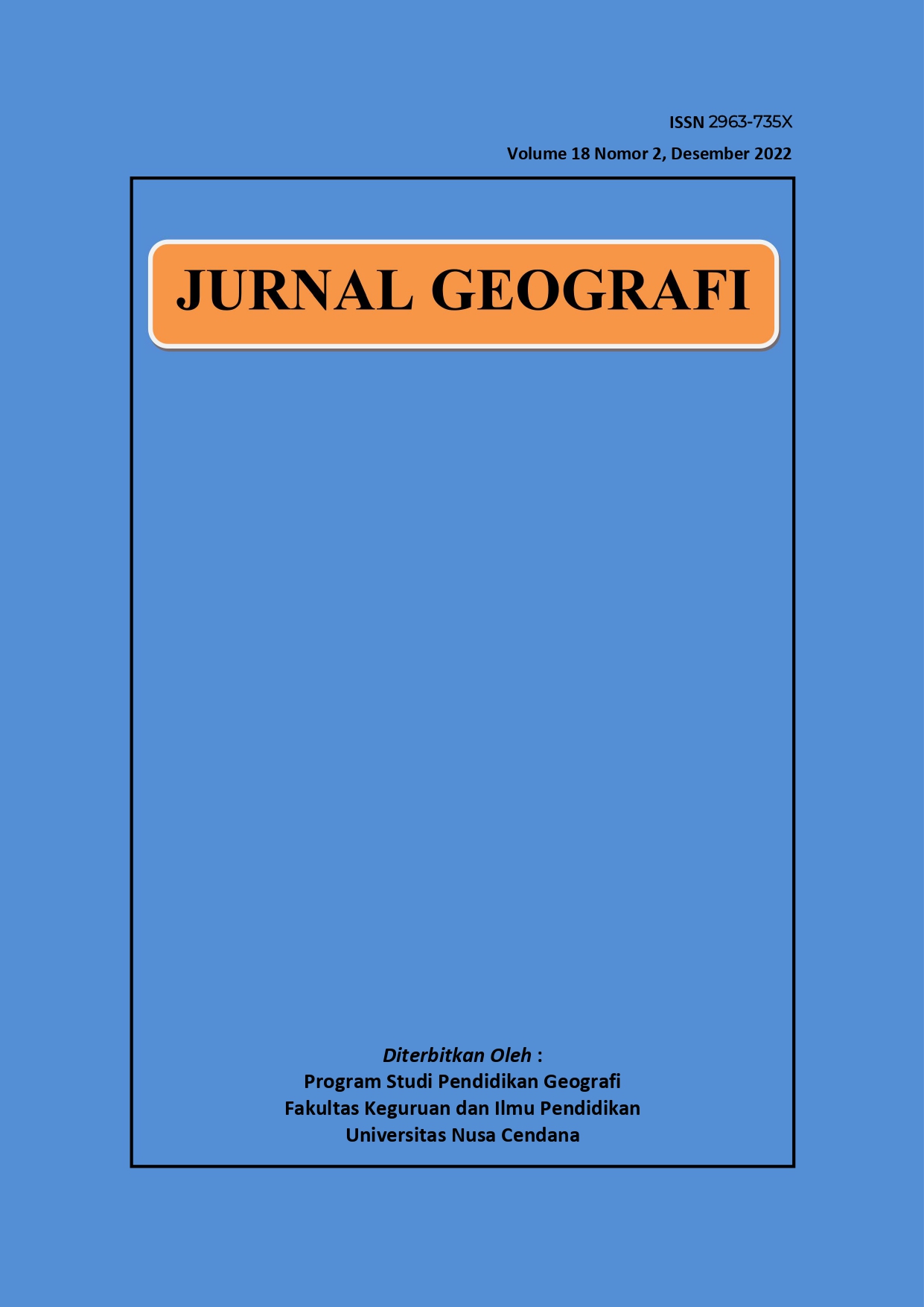KEARIFAN LOKAL “FAETUANG ” (MAKAN BARU) DALAM PENGELOLAAN SUMBERDAYA ALAM WILAYAH PESISIR DAN LAUT DI DESA TERNATE KECAMATAN ALOR BARAT LAUT KABUPATEN ALOR
Abstract
The purpose of this research is to describe and analyze about 1). The values contained in "Faetuang" (new meal); 2). the role of traditional institutions in the implementation of Faetuang (new meal); 3). sanctions against violators of "faetuang" (new meal). The method used in this research is descriptive qualitative, the informants used are six people selected by purposive sampling. Data collection techniques, namely: Observation, Interview, and Documentation of data analysis techniques used, namely: Data collection, Data reduction, Data presentation, Conclusion drawing/verification. The results showed that Faetuang (new food) contains values that are very valuable for indigenous peoples, namely social values, moral values, religious values, mutual cooperation values, Ternate Village traditional institutions have a role to regulate matters related to customs in where it is. The role of traditional institutions in the implementation of Faetuang (meal Baru) is to plan awareness messages for environmental conservation, as well as the role in practicing values to preserve the environment. The traditional sanctions given are considered very effective and provide a deterrent effect to indigenous peoples. There is even a synergy between customary law and formal law. The understanding of the younger generation in Ternate Village towards Faetuang (new food) is quite good. This is based on concrete actions taken by parents and traditional leaders through oral stories passed down from generation to generation as well as real testimonies through ceremonies or traditions carried out.

 Saleh Karim Trisna(1*)
Saleh Karim Trisna(1*)




